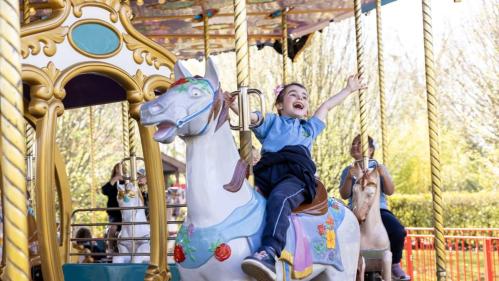 The word empowerment is becoming a buzzword, but with good reason. The word empower means to 'make someone stronger and more confident, especially in controlling their life and claiming their rights'. This is what all anti-bullying work needs to focus on. No child should be a victim, and every child should have the skills to be empowered. But these aren't being taught.
The word empowerment is becoming a buzzword, but with good reason. The word empower means to 'make someone stronger and more confident, especially in controlling their life and claiming their rights'. This is what all anti-bullying work needs to focus on. No child should be a victim, and every child should have the skills to be empowered. But these aren't being taught.
Our children need to be told the things they are good at, not focused on the things they aren't good at. We need confident, not arrogant, children, but why is it so difficult? Why do they lose that freshness of spirit they have at age four or five? Judgement? Fear? Questioning abilities? Comparing?
And yes, within human nature we have comparisons and fears; so too are there judgemental people who can harm us. So we go back to the old adage of ‘we can't change others around us, so let's look to ourselves’.
We do have the difficulty of, when our children become older, when those around them and those that judge are more important than us, their parents. And their messages, negative or positive, are absorbed in their entirety. But is this just at this age?
I have written and spoken on these topics for many years now, but this week I experienced it in my own home. My almost-five- year-old was coming home daily with stories of a boy in his class being mean. I was watching his self-worth be chipped away, and there was little I could do. His freshness and freedom returns soon after coming home, but is weakened when he is picked up at the school gate again the next day. So early, their peers can dictate so much.

I began to wonder is it self-esteem in isolation that we need to focus on, or is it character and strength of same. Self-esteem is fragile, easily damaged, but character is long-lasting; damaged self-esteem is hard to fix. Self-esteem is also fleeting - one day better than the next, and that's just for adults!
Build resilient, self-believing character with listening and attentiveness, with unconditional love, with boundaries, with the encouragement and reinforcement to jump up from mistakes and bad days and learn from them, not dwell on them. And remember, it's the person we focus on, not the task; focus on effort, not perfection.
This way we build strong, self-believing young people who understand values and understand that nothing is perfect, but that everything and everyone is equal. They all have bad days, and they all have the strength of character to see themselves in this frame too.








